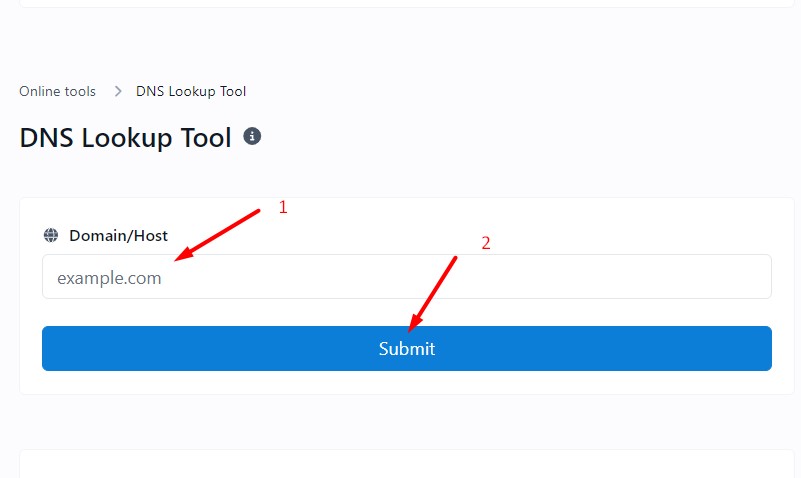DNS Lookup Tool
Introduction
The Domain Name System (DNS) is an indispensable component of the Internet—akin to a phone book for the World Wide Web. When you enter a domain, like www.example.com, the DNS translates it into an IP address so computers can access the online resource. A DNS Lookup tool is pivotal for anyone who needs to retrieve the DNS records of a given domain, acting as a window to the complex directory of internet pathways. Understanding and checking DNS records is not just a technical need but also a cornerstone for maintaining a robust online presence.
Understanding DNS Lookup
A DNS lookup is essentially a query sent from a user's device to a DNS server to obtain the DNS records associated with a domain name. It's a fundamental process that happens each time you visit a new website, send an email, or connect to a service online. This process maintains the smooth operation of internet services, ensuring that users reach their desired online destinations without memorizing complex numerical IP addresses.
Types of DNS Records and Their Importance
In the world of DNS, different types of records serve specific functions:
-
A and AAAA Records: These records map a domain to its respective IPv4 and IPv6 addresses, ensuring that when you enter a domain name, you're directed to the correct website.
-
MX Records: Mail Exchange records are crucial for routing emails correctly. They specify the email servers responsible for accepting email messages on behalf of a domain.
-
NS Records: Name Server records point out which servers are authoritative for a particular DNS zone, a necessary component for the DNS resolution process.
-
CNAME Records: The Canonical Name records allow a domain to be an alias of another domain, facilitating services like subdomains and multiple domain names pointing to a single IP address.
-
TXT Records: These versatile records hold text information used for several purposes, from verifying domain ownership to providing essential security features through SPF records.
-
SOA Records: Start of Authority records contain administrative metadata about the domain, including the primary name server and email of the domain administrator.
How the Online DNS Lookup Tool Works

Our online DNS lookup tool finds all the aforementioned DNS records of a domain with simplicity and efficiency, making it an essential tool for verifying hostname to IP address mappings. By entering a domain name, you can perform a DNS lookup that provides comprehensive details about the domain's authoritative nameservers, mail exchange servers, and any related cname or txt records. This can be particularly useful for IT professionals who need to check DNS records for troubleshooting, security, or management purposes.
Practical Applications of the DNS Lookup Tool
Regular use of a DNS checker tool can help in a multitude of scenarios:
-
Troubleshooting: If a website isn't loading correctly, checking DNS records can help identify issues with the server IP or domain configuration.
-
Verification: During site migrations, DNS record checks confirm that the domain's new IP address and MX records have propagated properly across the internet.
-
Security: Monitoring TXT and CAA records can be part of a comprehensive security strategy, ensuring that the domain's public key certificates for encryption are up-to-date and unaltered.
SEO and Security Benefits
Using a DNS checker tool can have significant SEO benefits, as quick DNS resolution is a factor in site speed—a key metric for search rankings. Regular checks ensure that the DNS is functioning correctly, which is crucial for a good user experience. Security-wise, staying on top of DNS records can prevent and reveal domain hijacking attempts and other malicious activities.
Conclusion
With digital presence being tantamount to visibility and credibility, the DNS lookup tool is an essential asset for any website owner or administrator. It empowers users to ensure their domain's DNS health, bolstering both SEO and security efforts. While the backend processes of the Domain Name System may seem intricate, a reliable DNS lookup tool simplifies these complexities, bringing clarity and control to your fingertips.
Similar tools
Use our free online IP address lookup tool to find geolocation, ISP, and other details of any IP address. Enter an IP and check its location now!
Use our Whois lookup tool to discover domain name details, view registration information, check availability, and keep your own domain information private.